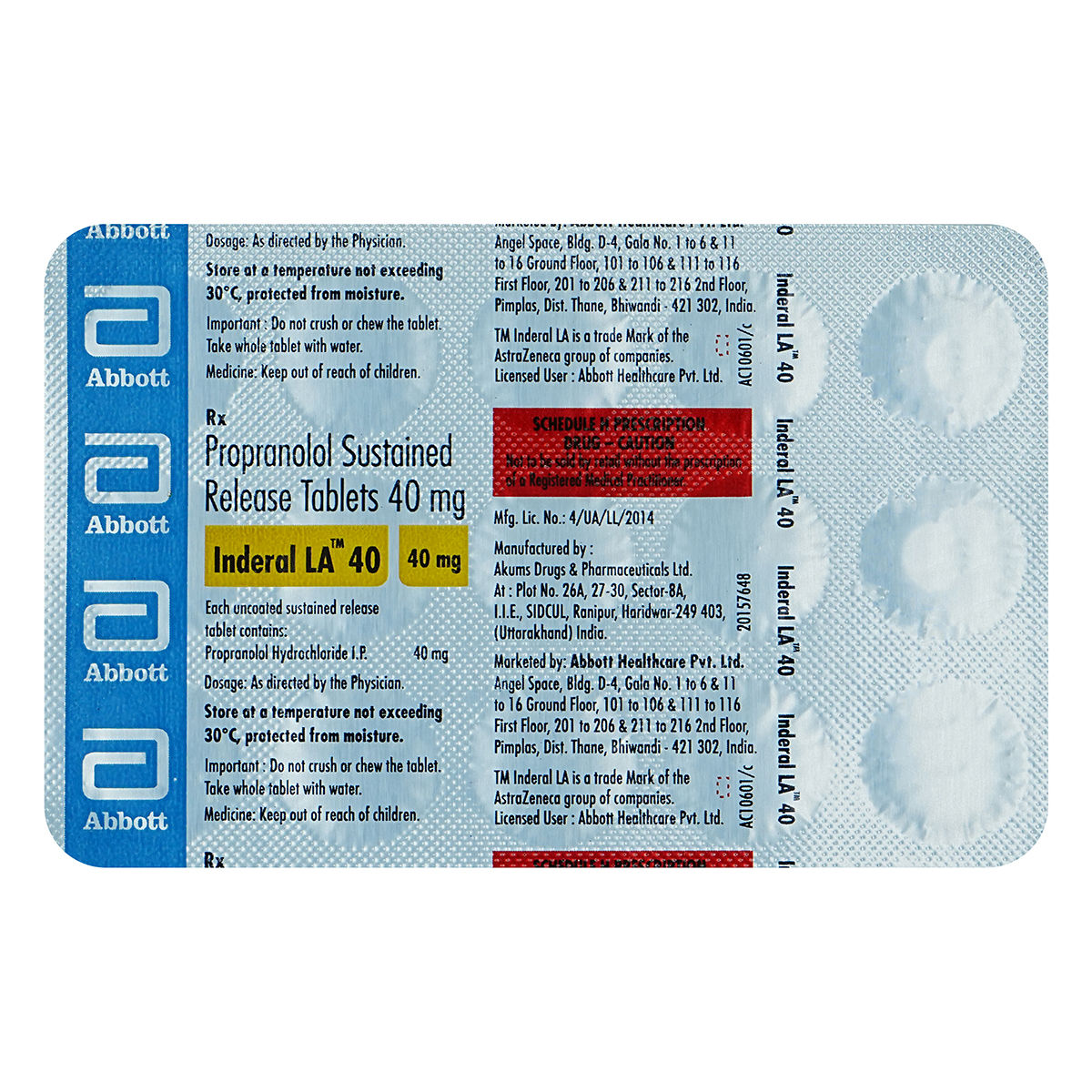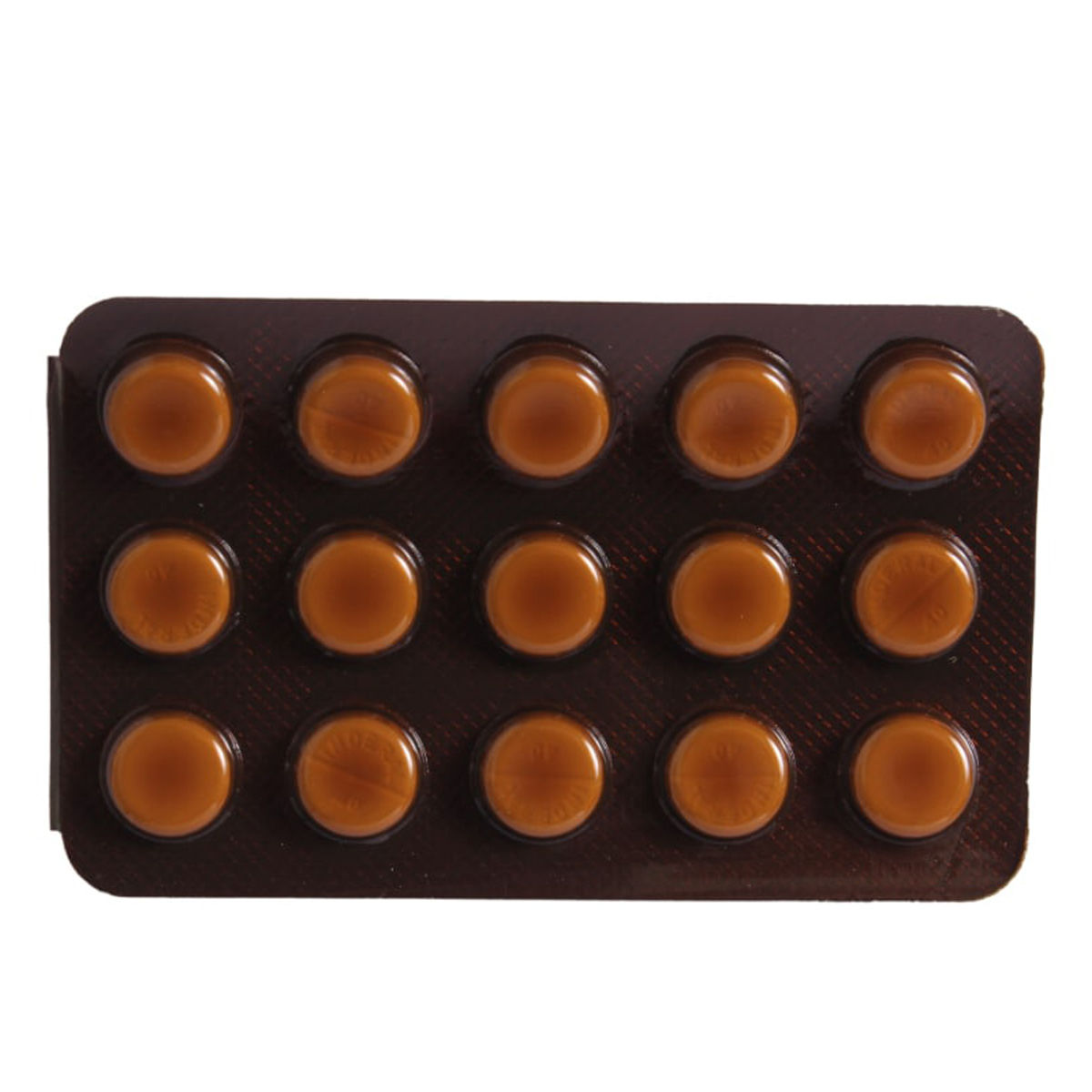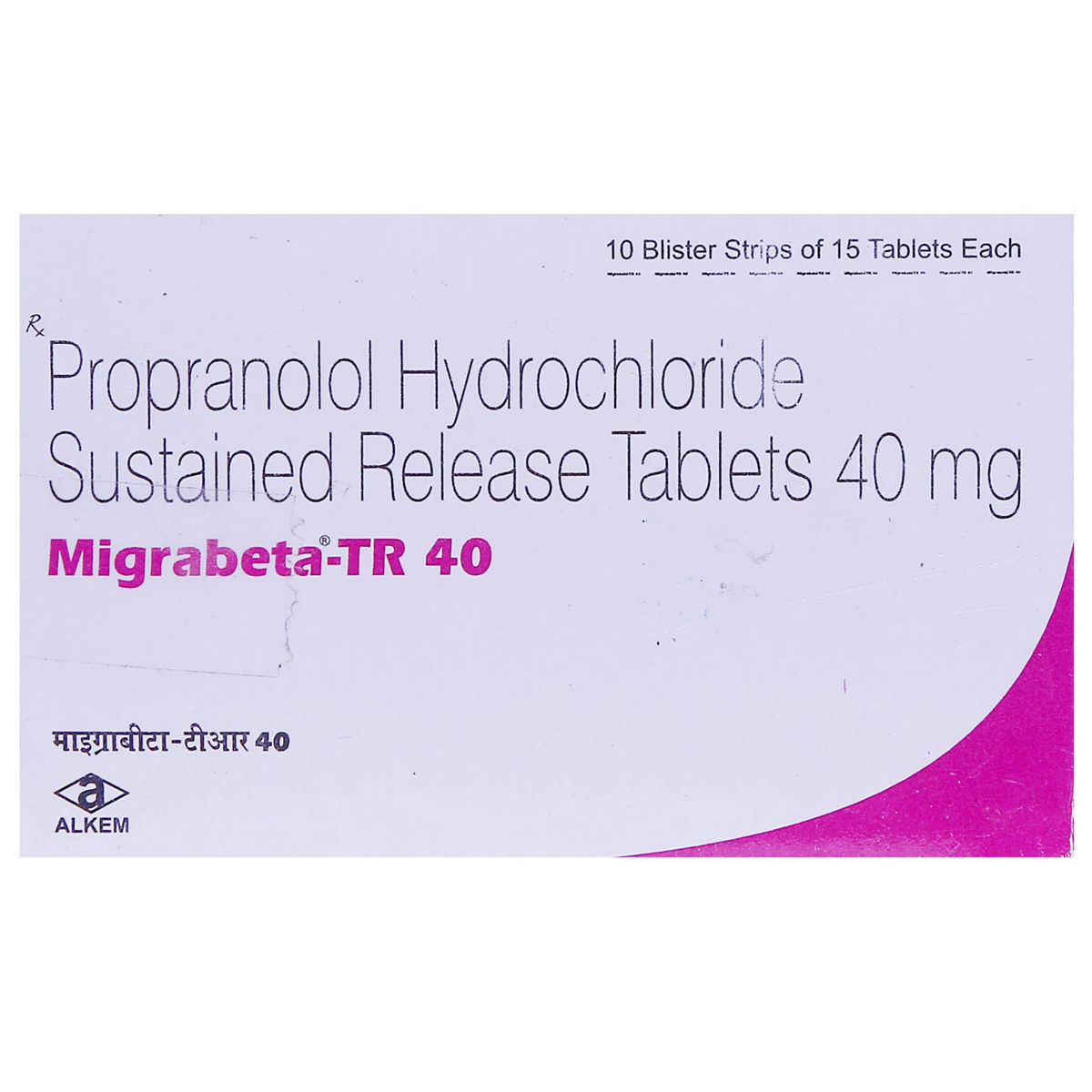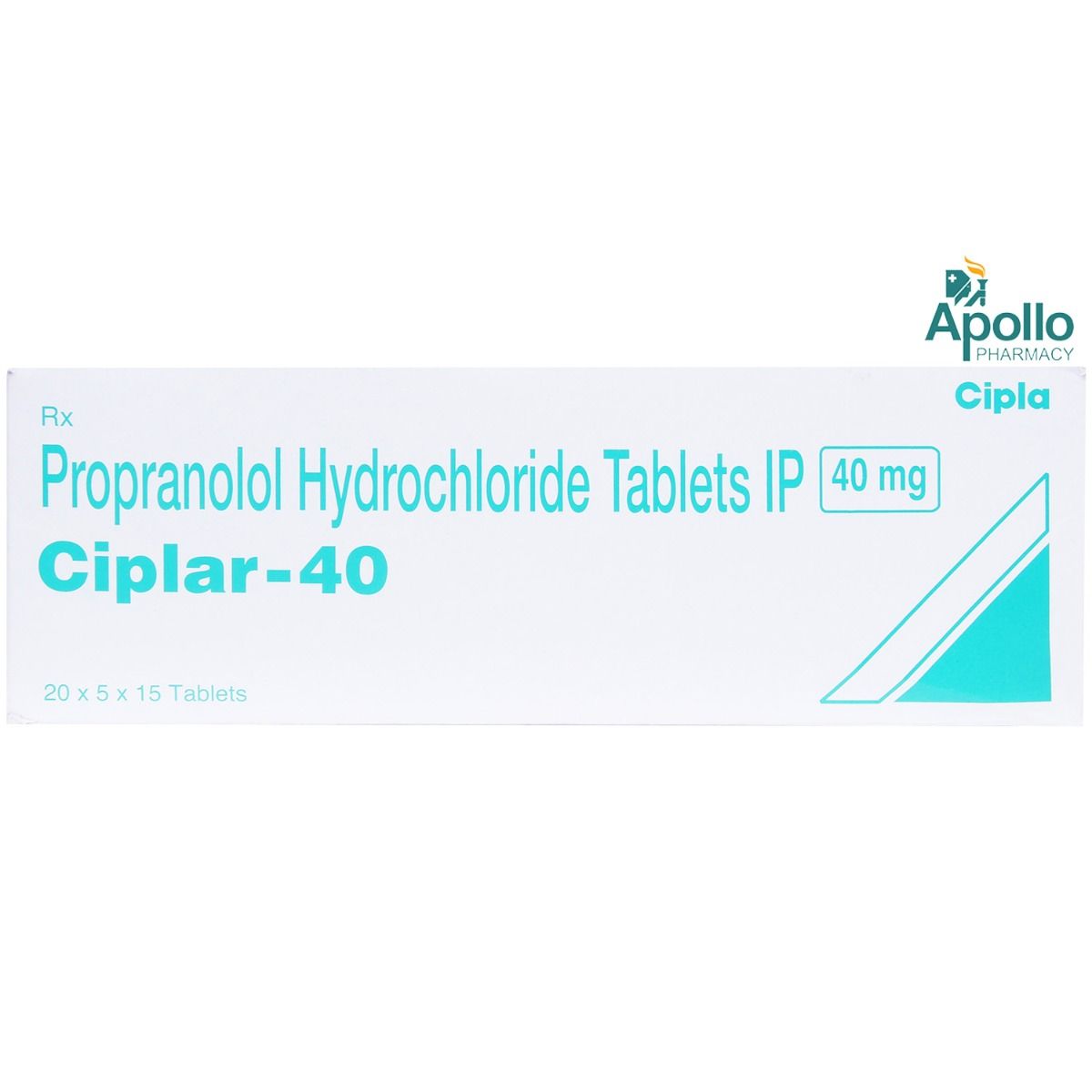Cardiplan-40 Tablet 10's

₹24.3*
MRP ₹27
10% off
₹22.95*
MRP ₹27
15% CB
₹4.05 cashback(15%)
Free Delivery
With Circle membership
(Inclusive of all Taxes)
This offer price is valid on orders above ₹800. Apply coupon PHARMA10/PHARMA18 (excluding restricted items)
Cardiplan-40 Tablet is used alone or together with other medicines to treat high blood pressure (hypertension), heart-related chest pain (angina), heart rhythm disorder (arrhythmia) and preventing symptoms of migraine headache and tremors (fits). It contains Propranolol, which plays a vital role in relaxing our blood vessels by blocking the action of certain natural substances in your body. This lowers the blood pressure and helps reduce the risk of stroke, heart attack, other heart problems or kidney problems in the future. It may cause common side effects like feeling dizzy or exhausted, cold hands or feet, difficulty sleeping, and nightmares.
Know Your Delivery Time
Provide Delivery Location
Available Offers
 Prescription drug
Prescription drugWhats That

Secure Payment

India's Most Trusted Pharmacy

Genuine Products
Composition :
Manufacturer/Marketer :
Consume Type :
Return Policy :
Expires on or after :
About Cardiplan-40 Tablet
Cardiplan-40 Tablet is used alone or together with other medicines to treat high blood pressure (hypertension), heart-related chest pain (angina), heart rhythm disorder (arrhythmia) and preventing symptoms of migraine headache and tremors (fits). It affects our heart and blood circulatory system, especially controlling blood through arteries and veins. High blood pressure adds to the workload of the heart and arteries. If it continues for a long time, the heart and arteries may not function properly. This can damage the blood vessels of the brain, heart and kidneys, resulting in a stroke, heart failure, or kidney failure. Lowering blood pressure may reduce the risk of stroke and heart attacks.
Cardiplan-40 Tablet plays a vital role in relaxing our blood vessels by blocking the action of certain natural substances in your body. This lowers your blood pressure and helps reduce your risk of a stroke, a heart attack, other heart problems or kidney problems in the future. This medicine needs to be taken regularly to be effective.
You can take Cardiplan-40 Tablet orally with or without food or as directed by your physician. Swallow the whole tablet with a glass of water. Do not crush, chew or break it. Cardiplan-40 Tablet is preferable to take at the same time every day for better results. Cardiplan-40 Tablet is generally safe to consume. You may have common side effects like feeling dizzy or exhausted, cold hands or feet, difficulty sleeping, and nightmares. These side effects are usually mild and short-lived. However, if the side effects are persistent, reach out to your doctor.
Don't stop taking Cardiplan-40 Tablet without talking to your doctor first. Stopping Cardiplan-40 Tablet gradually may cause heart rhythm and blood pressure changes and cause chest pain or a heart attack. Your doctor will lower your dose gradually over some time to help prevent these symptoms. You should not use Cardiplan-40 Tablet if you have a very slow heartbeat, asthma, serious heart condition (sick sinus syndrome) or any heart blockage. Children weighing less than 4.5 pounds should not be given a Cardiplan-40 Tablet . It should not be given to children less than 12 years of age. Before taking Cardiplan-40 Tablet , you should tell the doctor if you have any muscle disorder (myasthenia gravis, rhabdomyolysis), breathing problems (COPD, bronchitis, emphysema), low blood sugar level (hypoglycaemia), low blood pressure (hypotension), depression, previous heart failure, liver/kidney disease, thyroid hormone disorder, adrenal gland cancer or problems with circulation (Raynaud's syndrome).
Uses of Cardiplan-40 Tablet
• Hypertension Management: Cardiplan-40 Tablet is primarily prescribed to lower high blood pressure, reducing the risk of heart-related complications.
• Angina Pectoris Treatment: Cardiplan-40 Tablet helps alleviate chest pain (angina) caused by inadequate blood flow to the heart.
• Heart Rhythm Regulation: Cardiplan-40 Tablet is effective in managing certain irregular heartbeats, aiding in the stabilization of heart rhythm.
• Migraine Prevention: Cardiplan-40 Tablet is often used to prevent migraines, decreasing the frequency and severity of attacks.
• Anxiety and Performance Anxiety Relief: Cardiplan-40 Tablet is utilized to manage anxiety and can effectively reduce physical symptoms of performance anxiety, such as a rapid heart rate.
Directions for Use
Swallow the medicine as a whole with water; do not crush, break or chew it.
Medicinal Benefits
Cardiplan-40 Tablet works by blocking both beta receptors, namely beta 1 and beta 2. Cardiplan-40 Tablet blocks the beta 1 receptor located in the heart's cells, lowering heart rate and decreasing heart blood pumping frequency, decreasing raised blood pressure. On the other hand, Cardiplan-40 Tablet also blocks beta 2 receptors located in the lungs (bronchioles) and blood vessels of skeletal muscle, narrowing it. This, in turn, lowers your overall body's blood pressure and helps reduce the risk of a stroke, a heart attack, heart problems or kidney problems in the future. Cardiplan-40 Tablet also improves the symptoms of heart-related chest pain (angina) and may increase a person's stamina to do exercise with angina. Cardiplan-40 Tablet is used in combination with thiazide diuretics and other medicines to treat high blood pressure. Additionally, Cardiplan-40 Tablet reduces symptoms of essential tremor (fits) and prevents migraine. Cardiplan-40 Tablet can reduce symptoms of too much thyroid hormone (thyrotoxicosis) and can be taken together with thyroid-related medicines to treat an overactive thyroid.
How Cardiplan-40 Tablet Works
Storage
Side Effects of Cardiplan-40 Tablet
- Headaches
- Feeling tired, dizzy or weak
- Cold fingers or toes
- Feeling or being sick (nausea or vomiting)
- Diarrhoea
- Stomach pain
What if I have taken an overdose of Cardiplan-40 Tablet
Drug Warnings
Cardiplan-40 Tablet should not be used in the cardiogenic shock (heart unable to pump sufficient blood) and heart failure condition. Don't stop taking $ name without talking to your doctor first. Stopping Cardiplan-40 Tablet gradually may cause heart rhythm and blood pressure changes and cause chest pain or a heart attack. Your doctor will lower your dose gradually over some time to help prevent these symptoms. You should not use Cardiplan-40 Tablet if you have a very slow heartbeat, asthma, serious heart condition (sick sinus syndrome) or any heart blockage. Children weighing less than 4.5 pounds should not be given a Cardiplan-40 Tablet . It should not be given to children less than 12 years of age. Before taking Cardiplan-40 Tablet , you should tell the doctor if you have any muscle disorder (myasthenia gravis, rhabdomyolysis), breathing problems (COPD, bronchitis, emphysema), low blood sugar level (hypoglycaemia), low blood pressure (hypotension), depression, previous heart failure, liver/kidney disease, thyroid hormone disorder, adrenal gland cancer or problems with circulation (Raynaud's syndrome). You should avoid discontinuing the use of Cardiplan-40 Tablet before undergoing any surgery. Intake of Cardiplan-40 Tablet may mask symptoms of diabetes. So tell your doctor if you have type 1 or type 2 diabetes. It may also worsen your symptoms of congestive heart failure and bradycardia (slow heart rate less than 60). You should regularly monitor your prothrombin time if Cardiplan-40 Tablet is taken with anti-coagulants like warfarin.
Drug-Drug Interactions
Drug-Drug Interactions
Login/Sign Up
Coadministration of thioridazine with Cardiplan-40 Tablet may increase the blood levels of thioridazine and cause an irregular heart rhythm that may be serious.
How to manage the interaction:
Although there is an interaction between Cardiplan-40 Tablet and thioridazine, they can be taken together if prescribed by a doctor. However, if you experience sudden dizziness, lightheadedness, fainting, and shortness of breath contact your doctor immediately. Do not stop using any medications without first talking to your doctor.
Co-administration of Epinephrine with Cardiplan-40 Tablet may cause severe high blood pressure and reduced heart rate.
How to manage the interaction:
Taking Epinephrine with Cardiplan-40 Tablet can result in an interaction, but it can be taken if your doctor has advised it. However, if you experience any unusual symptoms contact your doctor immediately. Do not stop using any medications without first talking to your doctor.
Using fingolimod with Cardiplan-40 Tablet can cause an excessive lowering of heart rate and can lead to other heart problems.
How to manage the interaction:
Although taking Cardiplan-40 Tablet together with Fingolimod can possibly result in an interaction, they can be taken together if prescribed by your doctor. However, consult your doctor immediately if you experience lightheadedness, fainting, shortness of breath, chest pain, or heart palpitations. Do not stop using any medicines without consulting a doctor.
Taking atenolol and Cardiplan-40 Tablet together may lower your blood pressure excessively which may lead to side effects.
How to manage the interaction:
Combined use of atenolol and Cardiplan-40 Tablet may result in an interaction, it can be taken if your doctor has advised it. However, if you experience any unusual symptoms contact your doctor immediately. Do not stop using any medications without first talking to your doctor.
Using Cardiplan-40 Tablet together with isoetharine may reduce the benefits of both medications, since they have opposing effects in the body. In addition, Cardiplan-40 Tablet can sometimes cause breathing problems.
How to manage the interaction:
Although taking Cardiplan-40 Tablet together with Isoetarine can possibly result in an interaction, they can be taken together if prescribed by your doctor. However, if you experience any unusual symptoms contact your doctor immediately. Do not stop using any medications without first talking to your doctor.
Using Cardiplan-40 Tablet and verapamil together may lead to increased side effects.
How to manage the interaction:
Although taking Cardiplan-40 Tablet together with Verapamil can result in an interaction, they can be taken together if prescribed by a doctor. However, consult a doctor if you experience fatigue, headache, fainting, swelling of the extremities, weight gain, shortness of breath, chest pain, increased or decreased heartbeat, or irregular heartbeat. Do not stop taking any medication without consulting a doctor.
Taking Cardiplan-40 Tablet together with atazanavir can increase the risk of an irregular heart rhythm that may be serious.
How to manage the interaction:
Although taking Cardiplan-40 Tablet together with Atazanavir can possibly result in an interaction, they can be taken together if prescribed by your doctor. However, consult your doctor immediately if you experience sudden dizziness, lightheadedness, fainting, or an irregular heartbeat. Do not stop taking any medication without consulting your doctor.
Taking Cardiplan-40 Tablet with Labetalol can potentially enhance the effects of orthostatic hypotension (low blood pressure that happens when standing after sitting or lying down).
How to manage the interaction:
Although taking Cardiplan-40 Tablet together with Labetalol can result in an interaction, they can be taken together if prescribed by a doctor. However, consult a doctor if you experience lightheadedness or dizziness upon standing, blurred vision, weakness, fainting, or confusion. Do not discontinue any medicine without consulting a doctor.
Using saquinavir together with Cardiplan-40 Tablet increases the risk of irregular heart rhythm due to the additive effect.
How to manage the interaction:
Although taking Cardiplan-40 Tablet together with Saquinavir can possibly result in an interaction, they can be taken together if prescribed by your doctor. However, consult your doctor if you experience lightheadedness, sudden dizziness, fainting, slow pulse, or irregular heartbeat. Do not stop using any medication without consulting a doctor.
Combining ceritinib with Cardiplan-40 Tablet can decrease heart rate and increase the risk of an irregular heart rhythm.
How to manage the interaction:
Although taking Posaconazole together with Ceritinib can possibly result in an interaction, they can be taken together if prescribed by your doctor. However, consult your doctor if you experience lightheadedness, generalized weakness, dizziness, or shortness of breath, consult a doctor immediately. Do not stop using any medications consulting a doctor.
Drug-Food Interactions
Drug-Food Interactions
Login/Sign Up
Diet & Lifestyle Advise
- Keep your weight under control with a BMI of 19.5-24.9.
- Regular physical activity or exercise for at least 150 minutes per week or about 30 minutes most days of the week. Doing this can help lower your raised blood pressure by about 5 mm of Hg.
- Option for a diet rich in whole grains, fruits, veggies and low-fat dairy products.
- Limit sodium chloride (table salt) intake in your daily diet to 2300 mg per day or less than 1500 mg is ideal for most adults.
- If you are taking alcohol, then only one serving for women and two for men is advisable.
- Quitting smoking is the best strategy to lower the risk of heart disease.
- Avoid chronic stress as it can raise your blood pressure. Try to enjoy and spend time with your loved ones to cope with stress and practice mindfulness techniques.
- Monitor your blood pressure daily and if there is too much fluctuation, immediately contact your doctor.
- Including heart-healthy omega-3 fatty acid-containing food drinks in your daily diet. You can also use low-fat cooking oil like olive oil, soybean oil, canola oil, and coconut oil to help lower your elevated blood pressure.
Habit Forming
Therapeutic Class
Cardiplan-40 Tablet Substitute

Ciplar-LA 40 Tablet 15's
by Others
₹7.17per tabletBetacap TR 40 Capsule 10's
by Others
₹4.23per tabletInderal LA 40 Tablet 15's
by Others
₹3.24per tabletInderal 40 Tablet 15's
by Others
₹3.24per tabletMigrabeta-TR 40 Tablet 15's
by AYUR
₹3.24per tablet
Product Substitutes
Alcohol
Caution
You are recommended not to consume alcohol along with Cardiplan-40 Tablet to avoid unpleasant side-effect of low blood pressure causing dizziness or drowsiness.
Pregnancy
Caution
Cardiplan-40 Tablet is not recommended during pregnancy unless your doctor considers it essential. Your doctor will weigh the benefits and any potential risks before prescribing it to you.
Breast Feeding
Caution
Small amounts of Cardiplan-40 Tablet passess into the breast milk. However which is not enough to cause any problems to your baby. But, still it is advisable to contact your doctor before breastfeeding your baby.
Driving
Caution
Cardiplan-40 Tablet is unlikely to affect your ability to drive or to operate machinery. However, some people may occasionally feel dizzy or tired when taking Propranolol. If this happens to you, ask your doctor for advice.
Liver
Caution
Cardiplan-40 Tablet to be taken with caution, especially if you have a history of Liver diseases/conditions. Dose may have to be adjusted by your doctor.
Kidney
Caution
Cardiplan-40 Tablet to be taken with caution, especially if you have a history of Kidney diseases/conditions. Dose may have to be adjusted by your doctor.
Children
Unsafe
The safety and efficacy of Cardiplan-40 Tablet in children have not been established. Cardiplan-40 Tablet is not recommended in children unless prescribed by a child specialist.
FAQs
Cardiplan-40 Tablet is used to treat high blood pressure (hypertension), heart-related chest pain (angina), heart rhythm disorder (arrhythmia) and prevent symptoms of migraine headache and tremors (fits).
Cardiplan-40 Tablet plays a vital role in relaxing our blood vessels by blocking the action of certain natural substances in your body. This lowers your blood pressure and helps reduce your risk of a stroke, a heart attack, other heart problems or kidney problems in the future.
It is advised to continue your medicine even after your blood pressure is under control or becomes normal as blood pressure can shot up any time. If you have any discomfort, please consult your doctor immediately.
If you forget to take Cardiplan-40 Tablet at any time, take it as soon as you remember, then continue to take it at the usual times. Do not take a double dose to make up for a forgotten dose.
Yes, drowsiness is a common side effect of propranolol. It's often more noticeable when you first start taking the medication. As your body adjusts, this drowsiness usually subsides. If the drowsiness is significantly affecting your daily life or causing you concern, it's important to discuss it with your doctor. They may be able to adjust your dosage or recommend other strategies to help manage this side effect.
If you are trying to conceive or are already pregnant, speak with your doctor about the benefits and risks of taking propranolol. Propranolol is regarded to be safe during pregnancy, although it may impact your baby's growth later on.
No, it does not belong to diuretic class. Propranolol belongs to a group of medicines called beta blockers.
Cardiplan-40 Tablet normally begins functioning after a few hours. Propranolol may take up to a week to take action in people with heart disease or high blood pressure. You may not see any difference, but that does not mean it is not effective. It's critical to continue taking your medication unless your doctor advises.
Propranolol exposure is associated with an elevated risk of asthma hospitalization in vulnerable patients, which appears to vary depending on dose and duration of exposure.
If you forget to take your Cardiplan-40 Tablet , take it as soon as you remember unless it is almost time for your next dose. If it is almost time for your next dose, simply skip the missed dose and take your next dose at the regular time. Never take two doses at the same time, and never take an additional dose to compensate for a missed one.
If you stop taking propranolol suddenly, you may develop serious cardiac issues such as angina (chest pain), a heart attack, or an irregular heartbeat. Your doctor would most likely wish to gradually reduce your dose over a period of 1 to 2 weeks.
It's usually prescribed for high blood pressure and other heart problems, but it can also help with the physical symptoms of anxiety, like sweating and shaking. However, it should be used only if prescribed by the healthcare professional.
To get the most benefit from Cardiplan-40 Tablet , it's important to maintain a healthy lifestyle. Eat a balanced diet, exercise regularly, manage stress, and limit alcohol and smoking. By following these tips, you can help control your blood pressure and improve your overall health.
Cardiplan-40 Tablet is widely acknowledged to be an effective treatment for high blood pressure (hypertension).
Do not take more than the prescribed dose of Cardiplan-40 Tablet as it may cause overdose. The signs and symptoms of overdose may include slow heart rate, trembling, dizziness, seizures (fits) or difficulty breathing. If you suspect you have taken overdose or notice signs of overdose, please consult a doctor immediately.
Cardiplan-40 Tablet is not suitable for everyone. To make sure it's safe for you, tell your doctor before starting to take propranolol if you have any medical conditions or taking any medications.
Non-steroidal anti-inflammatory drugs (NSAIDs) may reduce the blood pressure-lowering effects of propranolol. If you take these medications together, your doctor should check your blood pressure. They may need to adjust your propranolol dose.
The common side-effects of Cardiplan-40 Tablet are dizzy or exhausted, cold hands or feet, difficulty sleeping, and nightmares. Most of these side effects fade away gradually over time without the need for medical intervention. However, consult your doctor if you experience these side effects frequently.
Country of origin
Manufacturer/Marketer address
Disclaimer
Author Details
We provide you with authentic, trustworthy and relevant information























